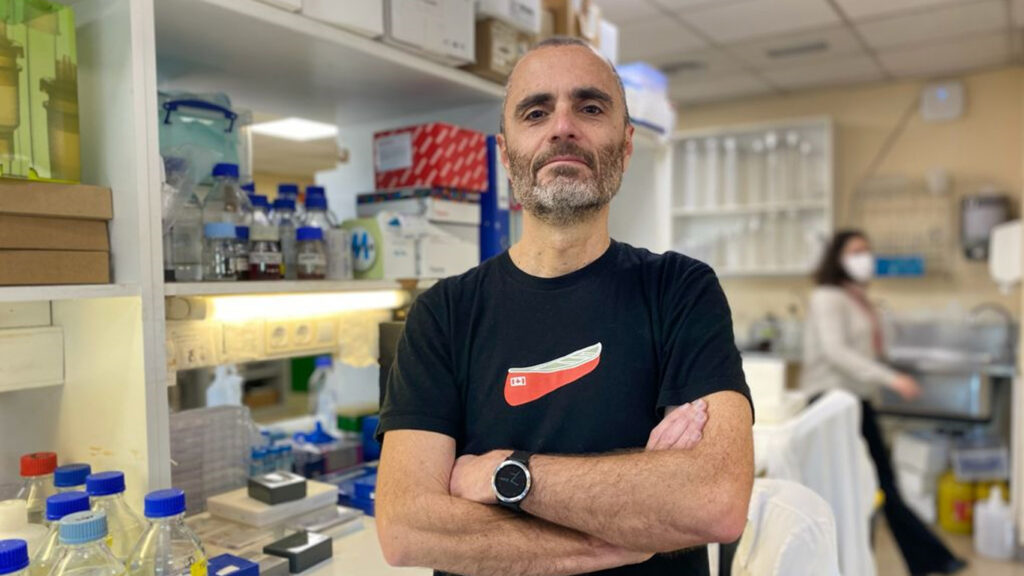The high number of immune cells within tumors is an indicator of a good prognosis, since they attack the tumor and help destroy it. How tumor cells prevent the entry of the immune system, how to avoid it and the role played by elements such as the extracellular matrix, that is, the molecular structure that supports the cells, are still unknown and do not have a clear answer.
Now, a study by the George Washington University, the University of Texas, the Bellvitge Biomedical Research Institute (IDIBELL) and the Catalan Institute of Oncology (ICO), published in the journal Nature , has just described a mechanism by which breast tumor cells generate extracellular matrix shields that prevent the entry of immune cells. In addition, the work proposes a new therapeutic strategy that would avoid the formation of these shields.
The article, which has had the participation of the IDIBELL and ICO breast cancer research group led by Dr. Miquel Angel Pujana, describes that the DDR1 protein, present on the surface of tumor cells, binds to the collagen of the matrix and aligns it forming a protective shield of the tumors against the immune system.
Furthermore, the work suggests the use of antibodies that block the formation of these shields as a new therapeutic strategy. Researchers show that specific antibodies that prevent the DDR1 protein from binding to collagen facilitate the destruction of tumors by the immune system. Treatment with these antibodies allows infiltration of immune cells, thus reducing tumor growth in preclinical tests with mice.
“It is the first time that this tumor “shield” mechanism has been observed – says Dr. Pujana – and, although the study that has just been published focuses on breast cancer, we believe that it is a mechanism also used by other types cancer, which would mean that treatment with specific antibodies could be therapeutically useful in different settings.”
This study has focused on in vitro models of mammary tumors and various mouse models. In the near future, researchers hope to be able to conduct clinical trials in breast cancer patients to help verify the safety of specific antibody treatment and determine.
The Bellvitge Biomedical Research Institute (IDIBELL) is a biomedical research center created in 2004. It is participated by the Bellvitge University Hospital and the Viladecans Hospital of the Catalan Institute of Health, the Catalan Institute of Oncology, the University of Barcelona and the City Council of L’Hospitalet de Llobregat.
IDIBELL is a member of the Campus of International Excellence of the University of Barcelona HUBc and is part of the CERCA institution of the Generalitat de Catalunya. In 2009 it became one of the first five Spanish research centers accredited as a health research institute by the Carlos III Health Institute. In addition, it is part of the “HR Excellence in Research” program of the European Union and is a member of EATRIS and REGIC. Since 2018, IDIBELL has been an Accredited Center of the AECC Scientific Foundation (FCAECC).

